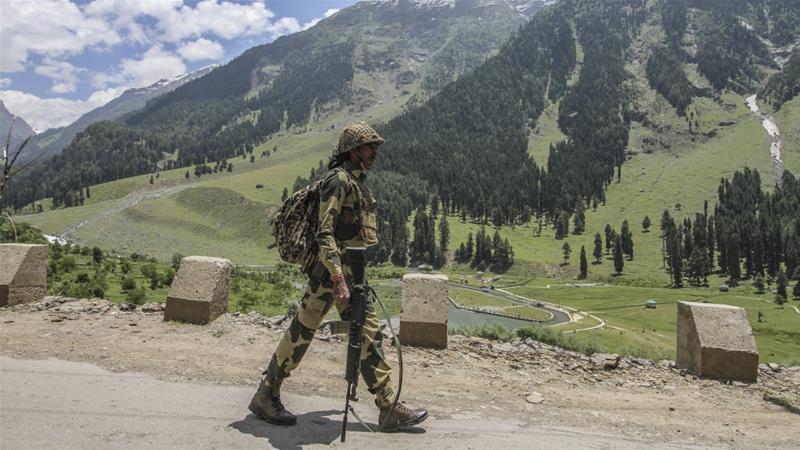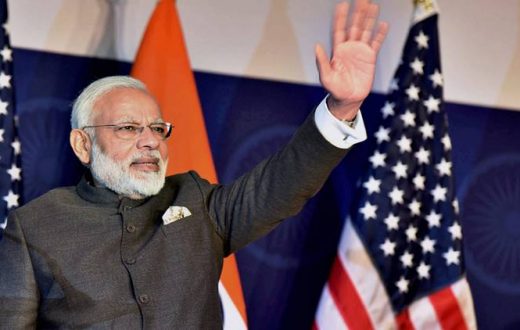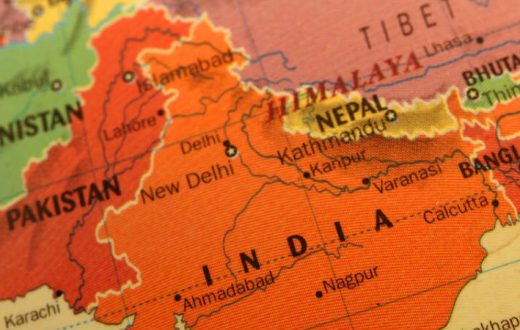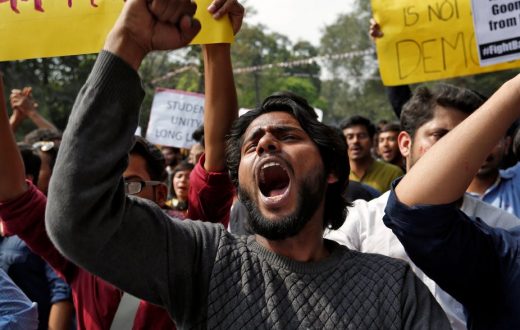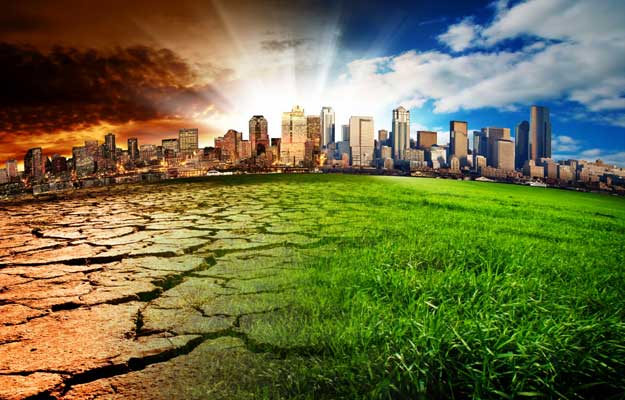The Indian state of Jammu & Kashmir (J&K) is in lockdown after the government revoked a special status granted to the troubled region.
On Monday, Interior Minister Amit Shah told India’s parliament that the federal government would scrap Article 370, a constitutional provision that grants special status and allows the Indian state of Jammu & Kashmir to make its own laws. The order was subsequently approved by the Indian President.
CNBC takes a look at what this means for Kashmir and for the Muslim-majority state’s relationship with India.
What is Article 370?
Article 370 of the Indian constitution carves out a special status to the state of J&K. It also limits the Indian parliament’s power to make laws for the state. In effect, the special status, which is described as “temporary” allows the state of Jammu & Kashmir to have its own constitution, its own flag and take decisions except for any matter that is related to defense and foreign affairs. The temporary provision was included in the constitution on 17 October, 1949. This special status dates back to the end of British rule in India in 1947 when Maharaja Hari Singh of the then colonized state of Jammu & Kashmir signed a Treaty of Accession for the state of J&K to join the Indian side.
Meanwhile, Article 35a, which was added to the constitution in 1954 under Article 370 gives the state of Jammu & Kashmir the right to decide who its permanent residents are. The clause further gives special rights to residents in government jobs, when buying property in the state and for educational scholarships among others.The state defines its permanent residents as those that are “born or settled within the state before 1911 or after having lawfully acquired immovable property and resident in the state for not less than 10 years before that date.”
The law bans non-permanent residents from settling in the state, buying land, and taking government jobs or scholarships.
Why is the Indian government revoking Article 370?
Prime Minister Narendra Modi’s ruling party had pushed for an end to Kashmir’s special constitutional status, arguing that such laws had hindered its integration with the rest of India. India’s government wants to strengthen its influence over its only Muslim-majority region.
In the run up to the most recent elections in May this year, Modi’s Bhartiya Janta Party (BJP) had promised a firm policy action to bring peace in the Jammu & Kashmir region. “In the last five years, we have made all necessary efforts to ensure peace in Jammu and Kashmir through decisive actions and a firm policy. We are committed to overcoming all obstacles that come in the way of development and providing adequate financial resources to all the regions of the state. We reiterate our position since the time of the Jan Sangh to the abrogation of Article 370,” according to the manifesto.
On Monday, Interior Minister Amit Shah introduced the measure in parliament amid massive protests from the opposition as well as regional parties in J&K. Opposition parties have condemned the government’s proposal, calling it “undemocratic.” Shah also said the state will be divided into two union territories – Jammu & Kashmir, which will have its own legislature, and Ladakh, which will be ruled directly by the central government and will have no legislature of its own. A union territory is a type of administrative division in India. Unlike the states of India, which have their own governments, union territories are federal territories governed directly by the main government.
What’s the situation on the ground?
India has deployed tens of thousands of troops across the Kashmir valley in anticipation of a backlash of the revoke. Indian authorities banned public movements, shut down schools and colleges indefinitely and put two former chief ministers of J&K — Omar Abdullah and Mehbooba Mufti — under house arrest ahead of the announcement.
The two leaders took to Twitter to express their disappointment over the decision and warned of consequences. Indian media reports suggest that mobile internet services have been suspended in Kashmir Valley and Satellite phones were being used by security officials.
Critics on Twitter have condemned the move, calling it “authoritarianism.” Indian-author Ramachandra Guha blamed the government for taking action without a proper debate.
What is Pakistan’s response to this?
On Monday, the Pakistan government strongly condemned India for taking “illegal steps” in its decision to revoke special status for Kashmir. This according to Reuters, citing a government statement. The Pakistan government also warned that it will “exercise all possible options.”
“As the party to this international dispute, Pakistan will exercise all possible options to counter the illegal steps,” Pakistan’s foreign ministry said in a statement.
How Kashmir got here?
India and Pakistan’s conflict over the mountainous region of Kashmir dates back to 1947 when both countries became independent from British colonial rule.
The entire subcontinent was partitioned into Hindu-majority India and Muslim-majority Pakistan, which led to a mass displacement as people migrated from one country to the other. Outbreaks of communal and religious violence killed hundreds of thousands of people in the subcontinent during that time.
Jammu and Kashmir was a former princely state where a large number of people were killed and others were driven away by the violence during the partition. Since then, India and Pakistan have fought multiple wars over the region — both countries claim the region in full but control only parts of it. Many have raised concerns over violence and human rights abuses in both India-controlled Jammu and Kashmir, as well as in Pakistan-controlled Azad Kashmir and Gilgit-Baltistan region.
This excellent article was originally found on CNBC here’s the link towards the source : https://www.cnbc.com/2019/08/05/article-370-what-is-happening-in-kashmir-india-revokes-special-status.html

